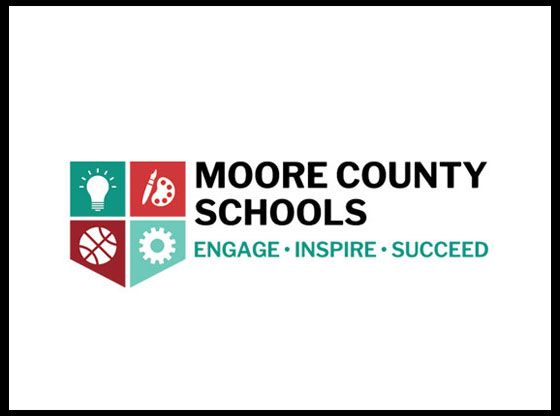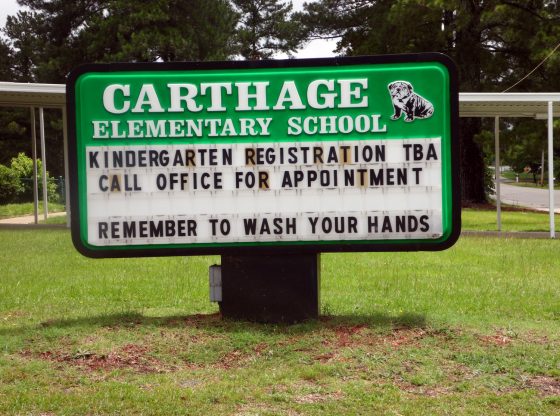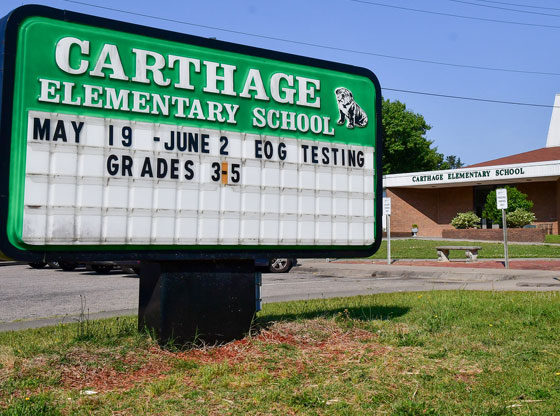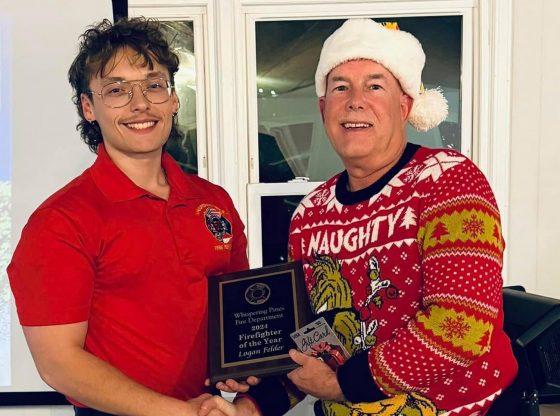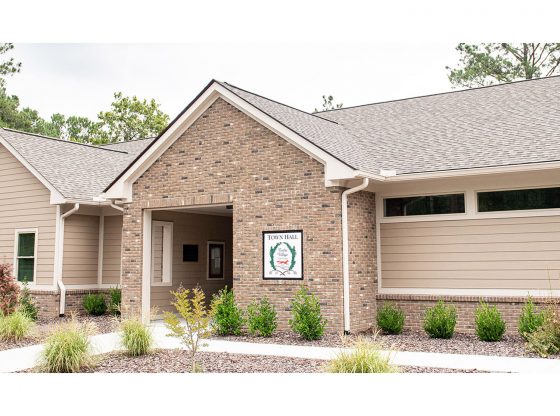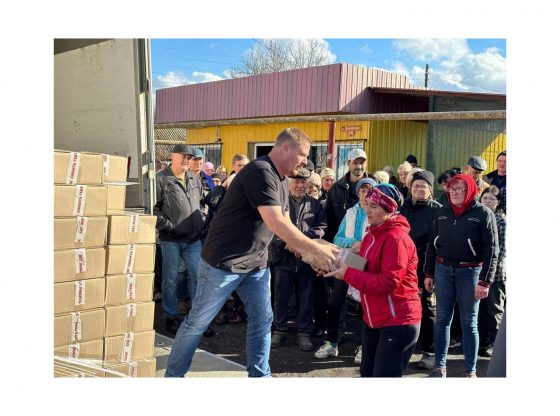Across North Carolina, 63 community service, nonprofit, higher education, and regional organizations will receive $30 million in Digital Champion grants to help North Carolinians access and use high-speed internet. The grant program, funded by the federal American Rescue Plan Act, will expand digital equity programming and advance digital inclusion and opportunity.
Moore County Schools was awarded $300,000 to provide low-income, non-native speakers, and rural residents with devices and affordable internet access and to train parents/guardians to use digital platforms effectively to monitor student progress and support their learning.
Sandhill Regional Library System, which includes Moore County, received $500,000 to upfit public technology infrastructure, establish a portable computer lab, enhance digital literacy by providing access to STEAM computers and software for public use, and create and implement an expansive digital literacy education program.
“All North Carolinians need the resources and skills to safely and effectively use high-speed internet and benefit from the opportunities it offers,” said Governor Cooper. “Digital Champion grants will help more families take part in our increasingly digital world to work, learn, access vital telehealth services and connect with others online.”
Digital Champion grants are also being awarded to the following organizations by the N.C. Department of Information Technology’s Office of Digital Equity and Literacy:
Appalachian Regional Library: $402,655.75
Asheville Medical Research and Education Corporation: $500,000
Beaufort County Community College: $800,000
Caldwell County Schools: $402,972
Camino Community Development Corporation: $600,000
Catawba County Library System: $300,000
Caterpillar Ministries: $100,000
Center for Digital Equity: $1,000,000
Central Pines Regional Council: $800,000
City of Raleigh Municipal Government: $300,000
City Startup Labs Inc.: $400,000
College of The Albemarle: $700,000
Durham Technical Community College: $400,000
E2D: $1,500,000
El Centro Hispano Inc.: $600,000
ESG Foundation: $200,000
Fontana Regional Library: $300,000
Franklin County Library System: $387,006.72
Goodwill Industries of Central North Carolina Inc.: $500,000
Granville County Schools: $400,000
Haywood Community College: $399,371.76
High Country Council of Governments: $800,000
Hispanic Federation Inc.: $600,000
Hola Carolina: $600,000
HUBZone Technology Initiative – HTI: $600,000
Kinston Teens Inc.: $396,129.61
Kramden Institute: $1,500,000
Land of Sky Regional Council: $689,960.61
Lions Services Inc.: $367,373.05
Lumbee Land Development Inc.: $400,000
Lumber River Council of Governments: $800,000
Madison-Mayodan Recreation Commission: $300,000
MANNA FoodBank: $440,364.85
Nash County: $58,665
N.C. Agricultural and Technical State University: $300,000
N.C. Coalition Against Domestic Violence: $300,000
N.C. Telehealth Network Association: $400,000
New Arrivals Institute Inc: $1,000,000
Operation Gateway: $463,325
Opportunities Industrialization Center Inc.: $500,000
Orange County Library: $83,821
Orange County Literacy Council Inc: $86,756.50
OurJourney: $400,000
Peletah Ministries: $459,127.76
Piedmont Triad Regional Council: $800,000
Pitt County Health Department: $398,608.90
Randolph County Cooperative Extension: $47,790
Richmond County Schools: $400,000
Shackle Free Community Outreach Agency Inc.: $600,000
South Piedmont Community College Foundation: $500,000
Southern Conference United Church of Christ: $200,000
Southern Vision Alliance: $200,000
Southwestern North Carolina Planning and Economic Development Commission: $568,606.56
Stanly County: $200,000
TechWorks Gaston: $300,000
The Caraway Foundation: $200,000
Upper Coastal Plain Council of Governments: $1,000,000
Wake County Library System: $398,700
Washington County: $44,639.33
Western Piedmont Council of Governments: $473,000
WinstonNet Inc.: $399,713.39
“We were thrilled to receive so many great applications from organizations across the state that want to help more North Carolinians take advantage of digital opportunities,” said NCDIT Secretary and State Chief Information Officer Jim Weaver. “With firsthand knowledge of their communities’ needs, these grantees will help us build digital equity so everyone in the state can take part in the modern digital economy.”
Program grantees will partner with the N.C. Department of Information Technology’s Office of Digital Equity and Literacy to help people from target populations identified in the Digital Equity Act, including low-income households; rural residents; aging residents; incarcerated or justice involved people; veterans; individuals with disabilities; individuals with a language barrier; and individuals who are members of a racial or ethnic minority group.
All projects will develop or expand digital equity programming and address at least one of the following elements of digital inclusion:
Affordability of reliable high-speed internet
Provision of internet-enabled devices (computer, laptops, etc.) that meet users’ needs
Access to digital literacy and skills training
Quality technical support
Applications and online content designed to increase accessibility and inclusivity
The Digital Champion grants are part of Governor Cooper’s plan to close the digital divide by expanding access to high-speed internet and addressing issues of affordability and digital literacy. For more information, please visit ncbroadband.gov.
Contributed.


